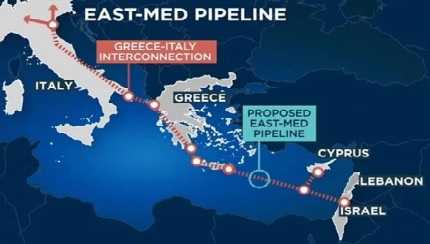
08 April 2022; MEMO: A senior US diplomat said the proposed pipeline to transport gas from the eastern Mediterranean to European markets, via Israel, Cyprus and Greece, was "not viable", stressing that "Europe needs to swiftly find alternative sources of energy following Russia's invasion of Ukraine", Reuters reported.
"The idea there is to build a very long pipeline in very deep water over some ten years and we believe that it is too expensive, not economically viable and will take too long," said Victoria Nuland, undersecretary of state for political affairs, yesterday.
Speaking to reporters in the Cypriot capital Nicosia, Nuland said countries throughout the region have understood that the dependence on Russian oil and gas is an extremely "bad bet" and there is a convergence of interest in diversifying supply even as we work to get green.
"And frankly, we don't have ten years, but in ten years from now, we want to be far, far more green and far more diverse in energy sources. So what we're looking for within the hydrocarbon context are options that can get us more gas, more oil for this short transition period," she added.
Focus has recently increased on Europe's need to diversify its gas sources, shifting away from Russia, following Moscow's invasion of Ukraine in late February.
The European Union plans to cut its reliance on Russian gas by two-thirds this year and end all Russian fuel imports by 2027, according to a Reuters report.
Cyprus, Israel and Greece have been considering a pipeline connecting the eastern Mediterranean gas discoveries to Europe, but the project took a setback when the US withdrew its support for the project in January.
The three countries are expected to take a decision on the viability of the $6 billion pipeline, known as EastMed, this year.




